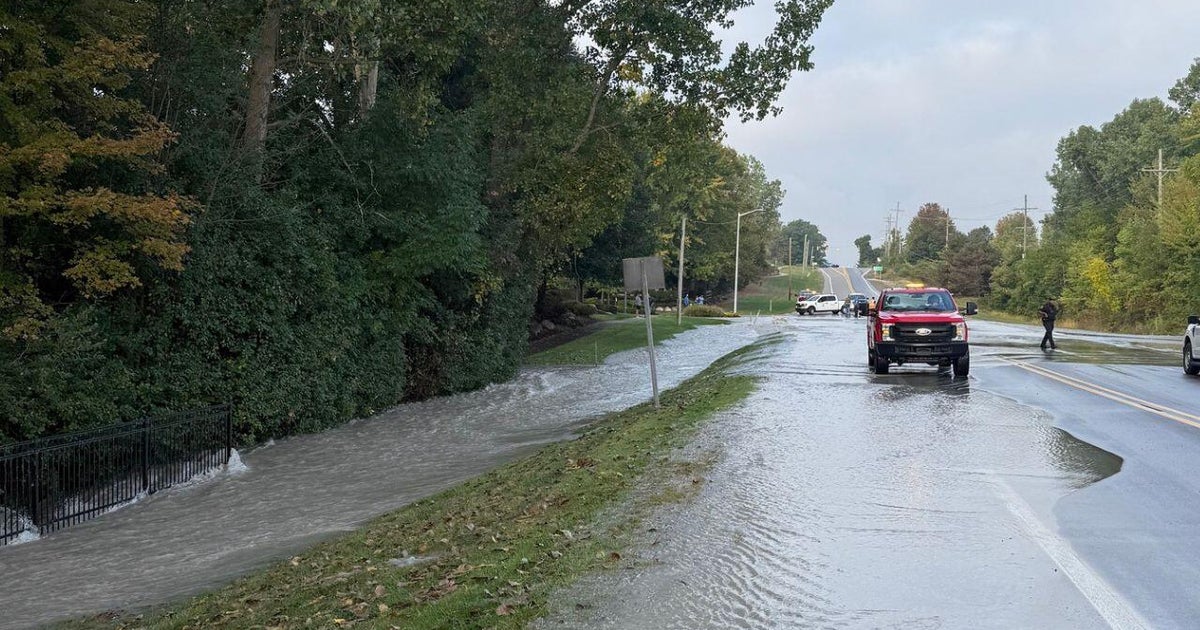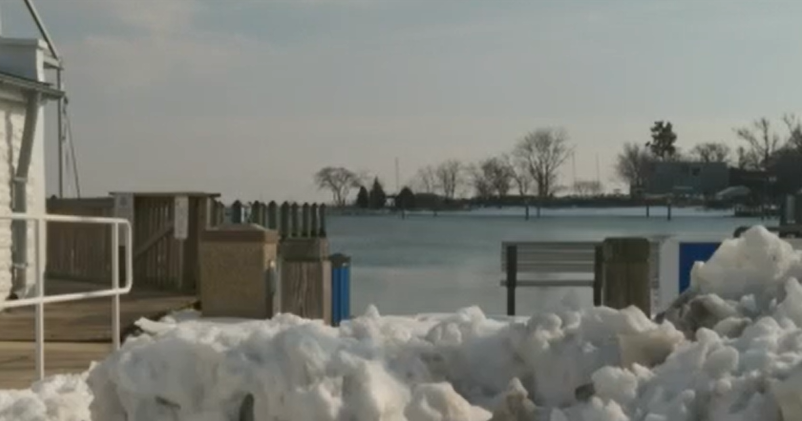Report: Lakes States Have Mixed Record On Compact
TRAVERSE CITY, Mich. (AP) -- Great Lakes states are making slow progress toward implementing a compact to protect the region's waters but have fallen short on conservation measures that are essential for the long-term health of the nation's largest freshwater system, environmental groups said Tuesday.
Ohio legislation that would allow large withdrawals from Lake Erie without a permit and an Illinois proposal to pipe Lake Michigan water to a suburban Chicago communities outside the basin are among examples of failing to abide by the letter or spirit of the compact, said a report by the National Wildlife Federation.
"The compact is still a strong document but it's far from certain that its promise will be met," said Marc Smith, the group's senior policy manager for the Great Lakes. Thus far, he said, the region has earned a grade of "incomplete."
The eight states and two Canadian provinces adjoining the lakes negotiated the compact to prevent the region's water from being shipped or piped to arid regions. Adopted in 2008, the pact outlaws such diversions with rare exceptions. It also requires the states to regulate their own large-scale withdrawals from the lakes, their tributary streams and underground.
They have until December 2013 to implement the deal. The Great Lakes and St. Lawrence River make up one-fifth of the world's freshwater supply and provide drinking water to nearly 40 million people in Michigan, Ohio, Indiana, Illinois, Minnesota, Wisconsin, Pennsylvania and New York, plus the Canadian provinces of Ontario and Quebec.
All the states have missed at least one deadline for establishing conservation and efficiency programs, the wildlife federation said.
Its report singled out for criticism a measure approved by Ohio legislators and awaiting Gov. John Kasich's signature that would require no permit for pulling less than 5 million gallons a day from Lake Erie and less than 2 million gallons from rivers feeding into the lake. Those are the region's most permissive withdrawal standards, the report said.
Allowing such large volumes to be taken from Lake Erie, the shallowest of the Great Lakes, could result in "increased harmful algal blooms, reduction in critical habitat for sport fish such as walleye, perch and steelhead, and a loss of recreational opportunities," said Kristy Meyer of the Ohio Environmental Council.
Supporters of the Ohio legislation say allowing businesses to increase water use would boost employment in cities such as Cleveland and Toledo, which have lost thousands of jobs in recent years.
The wildlife federation report also faults Illinois regulators who this year approved a $250 million pipeline project that would give 10 suburban communities outside the Great Lakes basin a share of the 2.1 billion gallons that Chicago removes from Lake Michigan each day. While the compact allows the longstanding diversion to continue, the project could lead neighboring communities to seek Great Lakes water as well, the report said.
Among positive steps taken by the states are Wisconsin's deliberate consideration of a proposal by the city of Waukesha to remove Lake Michigan water and a new Michigan screening test for large withdrawals, it said.
(© Copyright 2011 The Associated Press. All Rights Reserved. This material may not be published, broadcast, rewritten or redistributed.)







